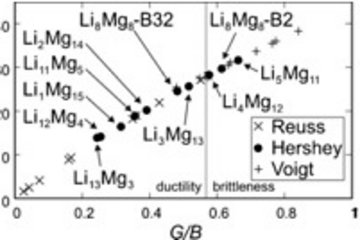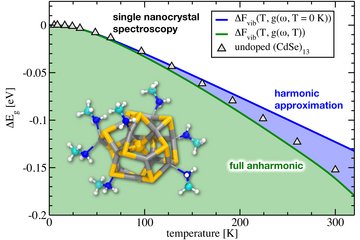All genres
441.
Talk
First principles simulation of thermodynamic properties of iron and iron-based alloys. Thermec'2009. International conference on processing & manufacturing of advanced materials, Berlin, Germany (2009)
442.
Talk
The accuracy of first principles methods inpredicting thermodynamic properties of metals. XVIII International Material Research Conference, Cancun, Mexico (2009)
443.
Talk
Ab Initio Thermodynamics: Status, applications and challenges. The second Sino-German Symposium on “Computational Thermodynamics and Kinetics and Their Applications to Solidification”, Kornelimünster/Aachen, Germany (2009)
444.
Talk
First principles determination of phase transitions in magnetic shape memory alloys. 2nd Sino-German Symposium on Computational Thermodynamics and Kinetics and their Application to Solidification, Aachen, Germany (2009)
445.
Talk
Role of Atomistic Simulations in the Prediction of Thermodynamic Properties of Materials. Workshop on Multi-Scale Computational Materials Design of Structural Materials, POSCO international center, Pohang, South Korea (2009)
446.
Talk
The accuracy of first principles methods in predicting thermodynamic properties of metals. Asia Steel 2009, Busan, South Korea (2009)
447.
Talk
First Principles Predictions of Stacking Fault Properties in FeMn Alloys. Asia Steel Conference 2009, Busan, South Korea (2009)
448.
Talk
Wasserstoff in X-IP Stahl (ab initio) Einfluss von Defekten auf die Energetik und Dynamik von Wasserstoff in Manganstählen. X-IP Workshop, Dortmund, Germany (2009)
449.
Talk
Universal trends for the solubility of hydrogen in non-magnetic 3d transition metals derived from first principles. DPG Spring meeting, Dresden, Germany (2009)
450.
Talk
Ab initio up to the melting point: Anharmonicity and vacancies in aluminum. DPG Früjahrstagung, Dresden, Germany (2009)
451.
Talk
First principles determination of phase transitions in magnetic shape memory alloys. DPG Spring Meeting 2009, Dresden, Germany (2009)
452.
Talk
Effect of interstitial carbon on the magnetic structure of fcc iron: Towards an ab-initio understanding of austenitic steels. DPG Spring Meeting 2009, Dresden, Germany (2009)
453.
Talk
The free energy of iron: Integrated ab initio derivation of vibrational, electronic, and magnetic contributions. DPG Spring Meeting 2009, Dresden, Germany (2009)
454.
Talk
Application of an eight-band k.p model to study III-nitride semiconductor. DPG Spring Meeting 2009, Dresden, Germany (2009)
455.
Talk
First principles determination of phase transitions in magnetic shape memory alloys. APS March Meeting, Pittsburgh, PA, USA (2009)
456.
Talk
Investigation of group III-nitride semiconductor nanostructures using an eight-band k.p formalism. APS March meeting, Pittsburgh, PA, USA (2009)
457.
Talk
Ab initio up to the melting point: Anharmonicity and vacancies in aluminum. APS March Meeting, Pittsburgh, PA, USA (2009)
458.
Talk
Ab initio investigation of temperature dependent effects in magnetic shape memory Heusler alloys. SPP 1239 Convention, Duisburg, Germany (2009)
459.
Talk
Ab initio steel design: Achievements and challenges. Scientific Advisory Board Meeting 2009, MPI für Eisenforschung GmbH, Düsseldorf, Düsseldorf, Germany (2009)
460.
Talk
First principles determination of thermodynamic properties in metals. ICAMS Monday Seminar, ICAMS Bochum, Germany (2009)











